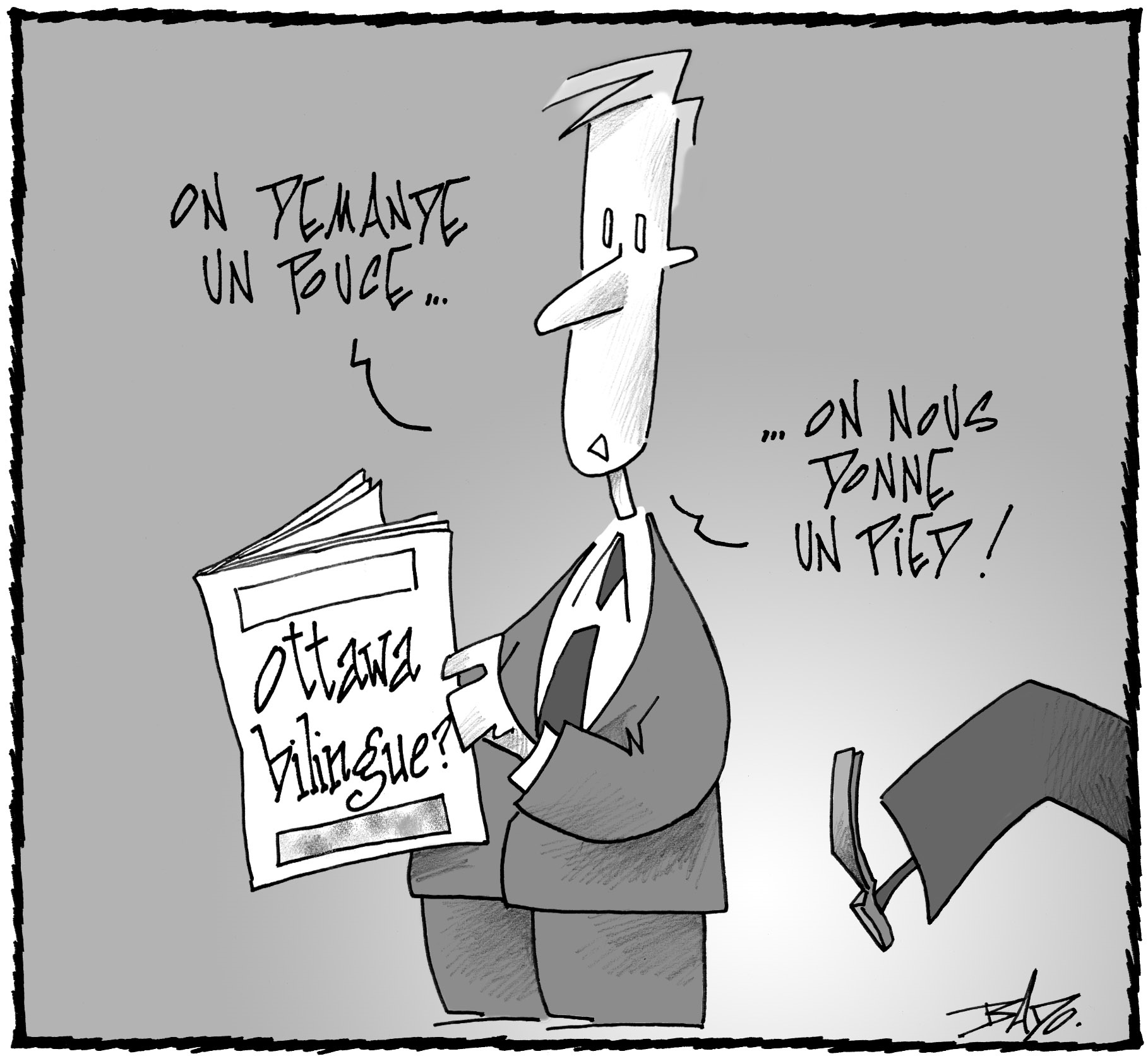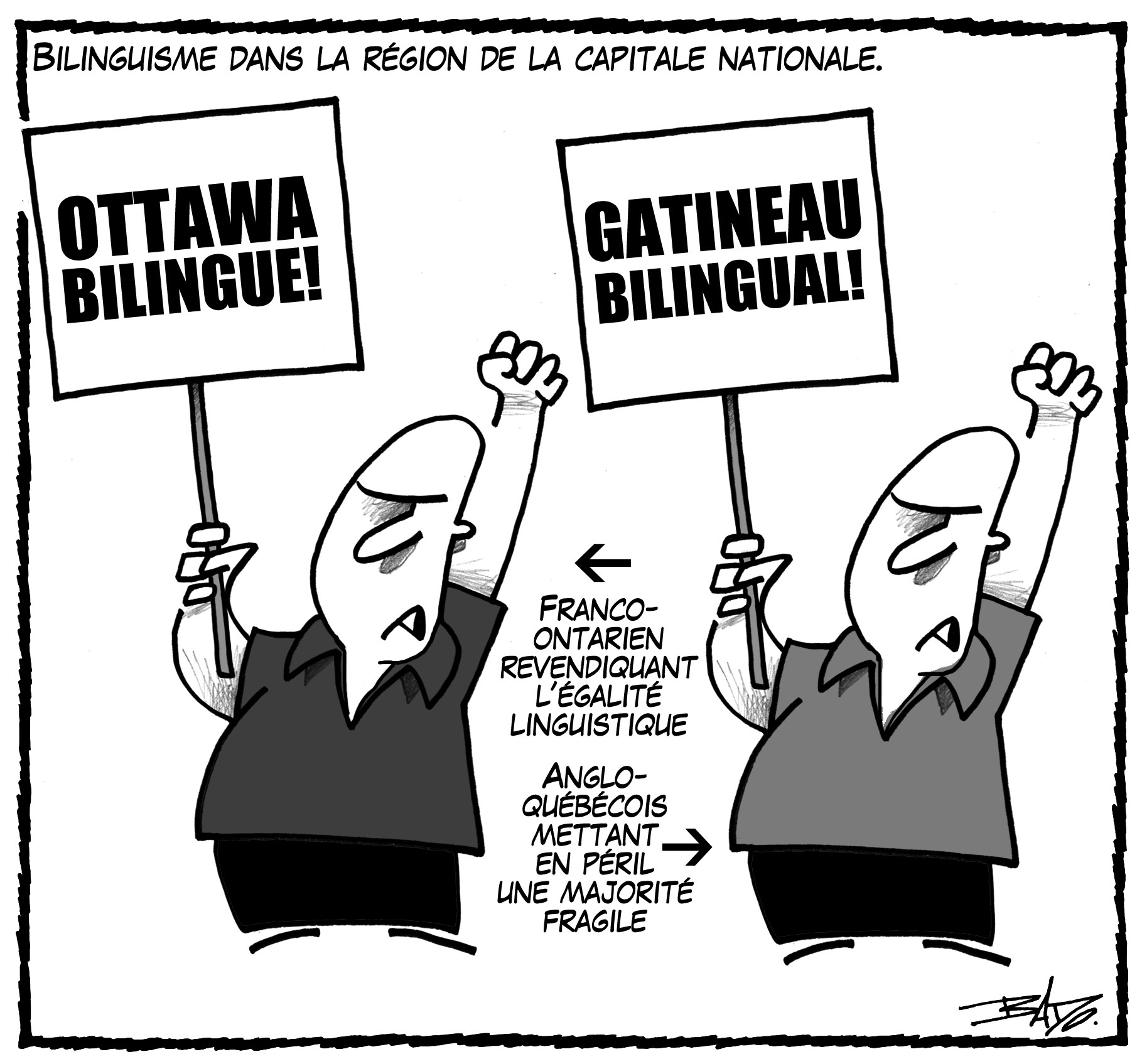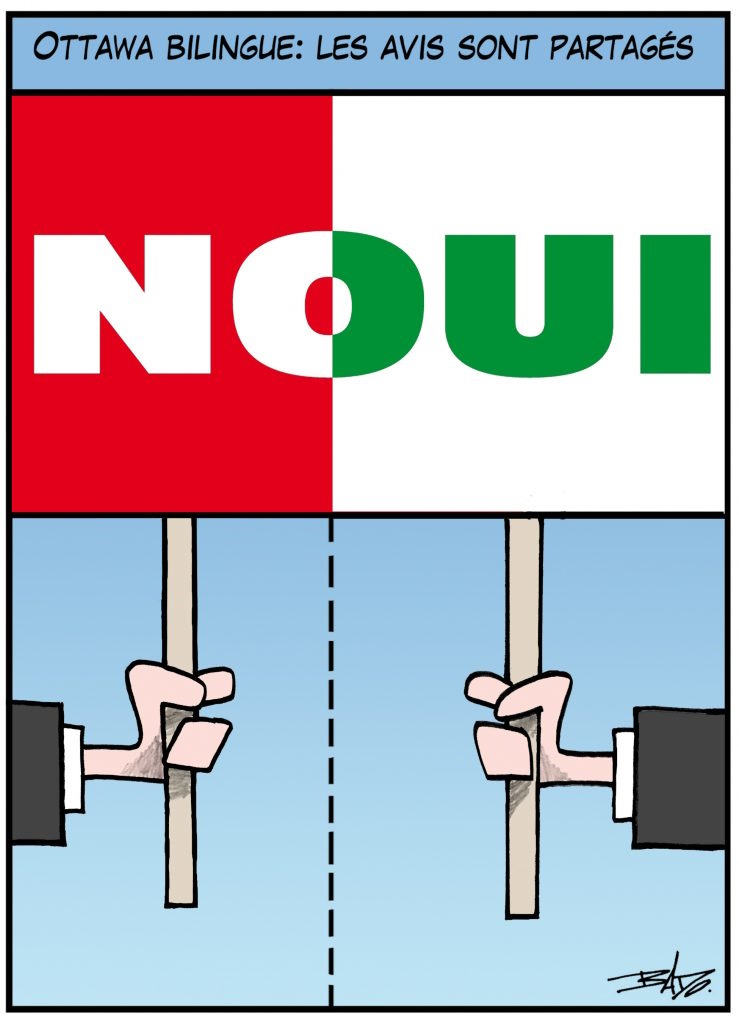The bilingual capital of a bilingual country
Ottawa’s francophone community, which has been present since the days of Bytown, has grown stronger over the course of the battles that marked its history and that of Franco-Ontarians. This community has never stopped fighting to affirm the francophone character of certain neighbourhoods, such as Lowertown, Vanier and Orléans, and for recognition of the bilingual status of Ottawa, the capital of an officially bilingual country.
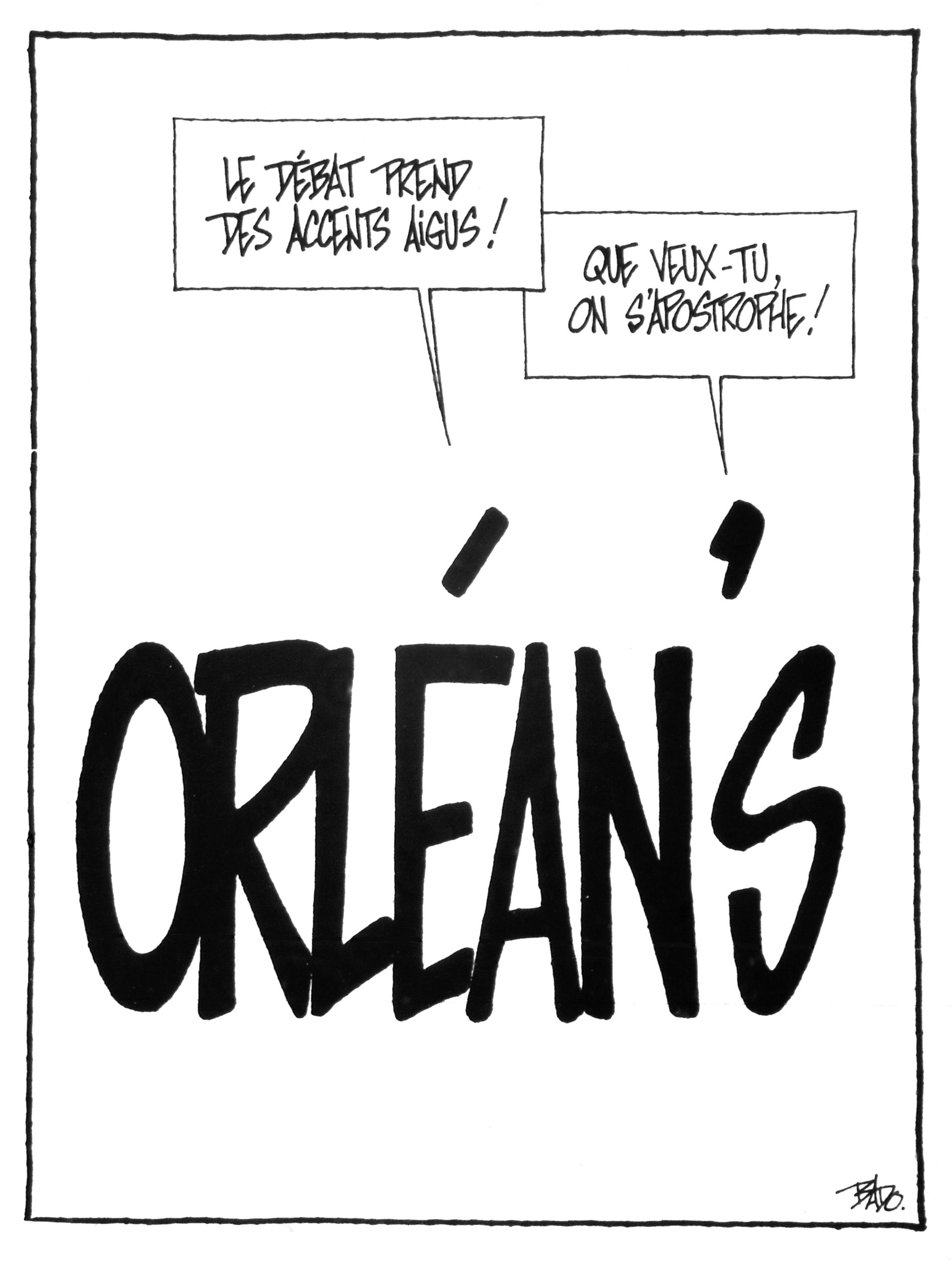
Orléans, at one time a francophone city on the outskirts of Ottawa, now a suburban community in Ottawa’s east end, has a long history of trying to retain its accent. In 1994, the Ontario Geographic Names Board finally approved the request to retain that accent in the name “Orléans”.
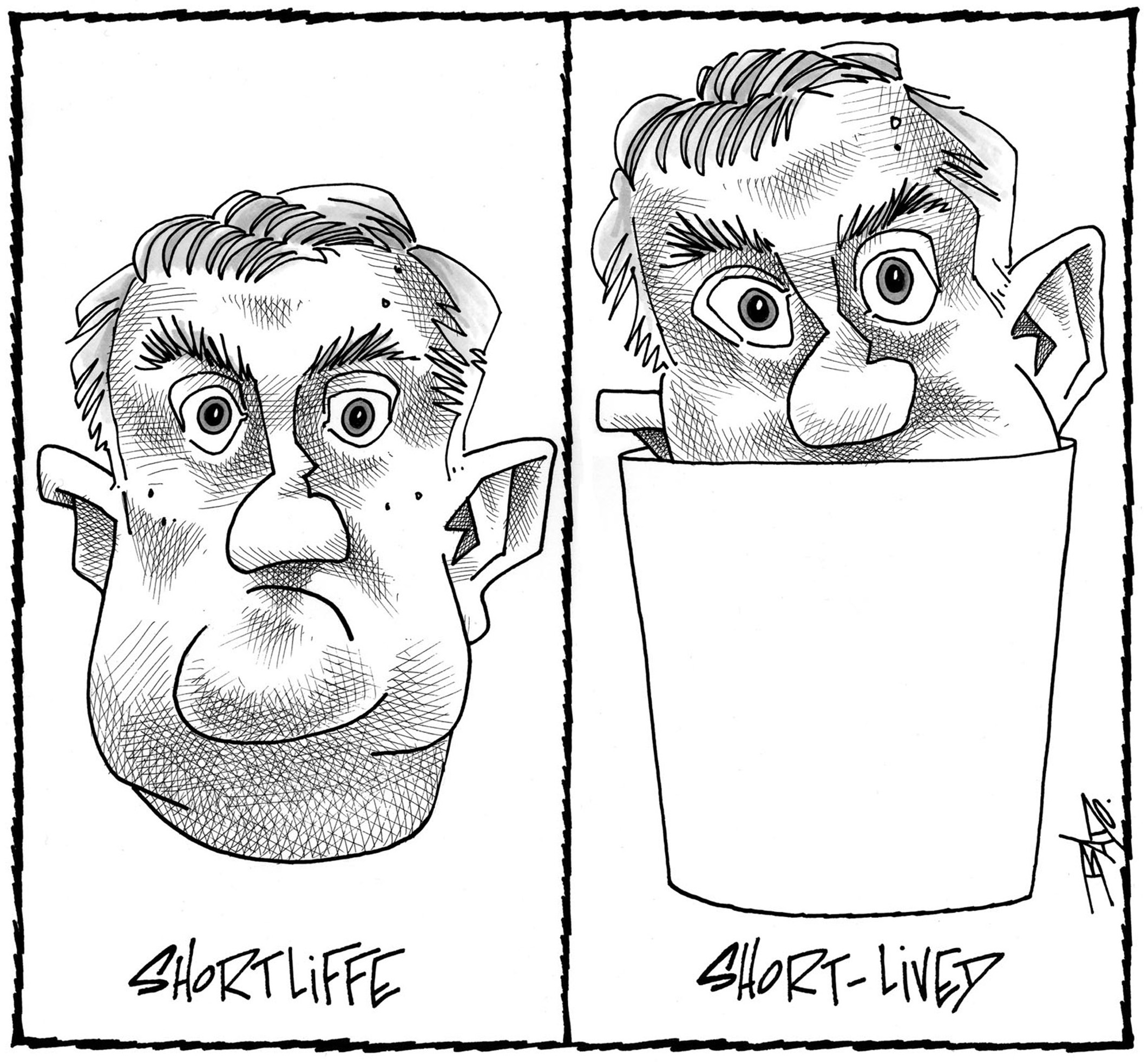
In 1999, Glen Shortliffe released a report recommending the creation of a greater city of Ottawa that would have one government, which would be bilingual. The government of Mike Harris only endorsed the first recommendation.
The issue of Ottawa’s bilingualism has been in the air for years, from time to time coming to the forefront. The first bylaw concerning the issue dates back to 1970. The matter took centre stage as a result of the pressure applied by the Royal Commission on Bilingualism and Biculturalism (also known as the Laurendeau‑Dunton Commission). One full volume of the Commission’s report was dedicated to the nation’s capital. In the early 80s, Lucien Bradet’s report on the effectiveness of the City of Ottawa’s policy on bilingualism concluded that the situation was disastrous given that under the policy at the time, the measures regarding French services were left to the discretion of public servants. In 1981, the City of Ottawa’s bilingualism policy was re-written. While the situation improved, it was far from the official bilingualism Ottawa’s francophones expected.

The Conservative members of Ontario’s Legislative Assembly adopt Bill 25 to create the larger city of Ottawa without giving it bilingual status.
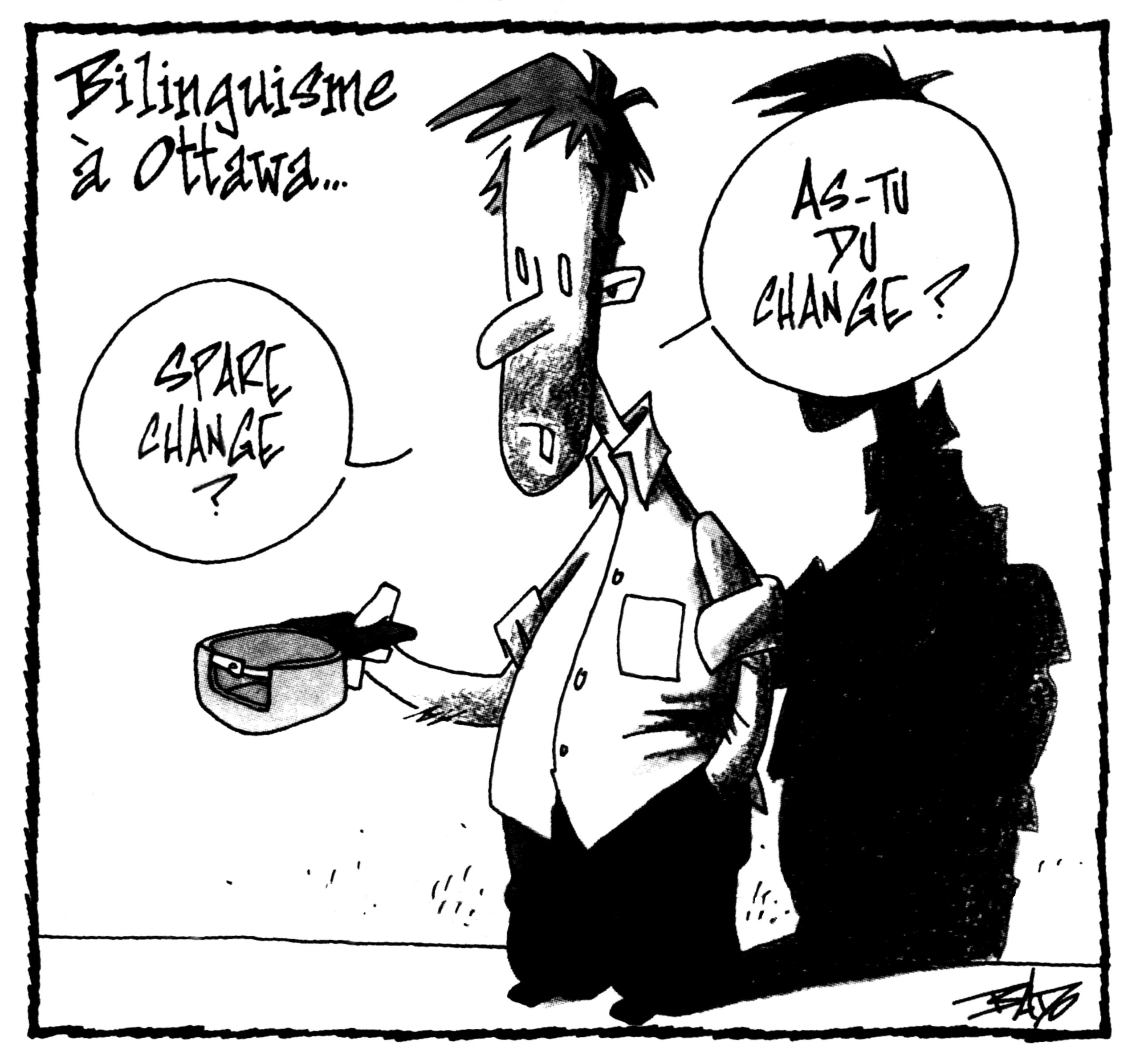
Adoption of a language policy by the City of Ottawa that assures francophones of services in their language. Many consider that policy falls far short of what’s needed.
In 2000, a few days before the municipal merger making Ottawa the city we know today, Vanier municipal council adopted a final resolution expressing the wish that the new City of Ottawa become officially bilingual. Soon afterwards, in 2001, the newly expanded City adopted a language policy—after protracted acrimonious debates—that ensured francophones would be served in their language. Many found that policy fell short because, in fact, the new municipality ended up merely implementing the policy that had been in place in the former City of Ottawa.
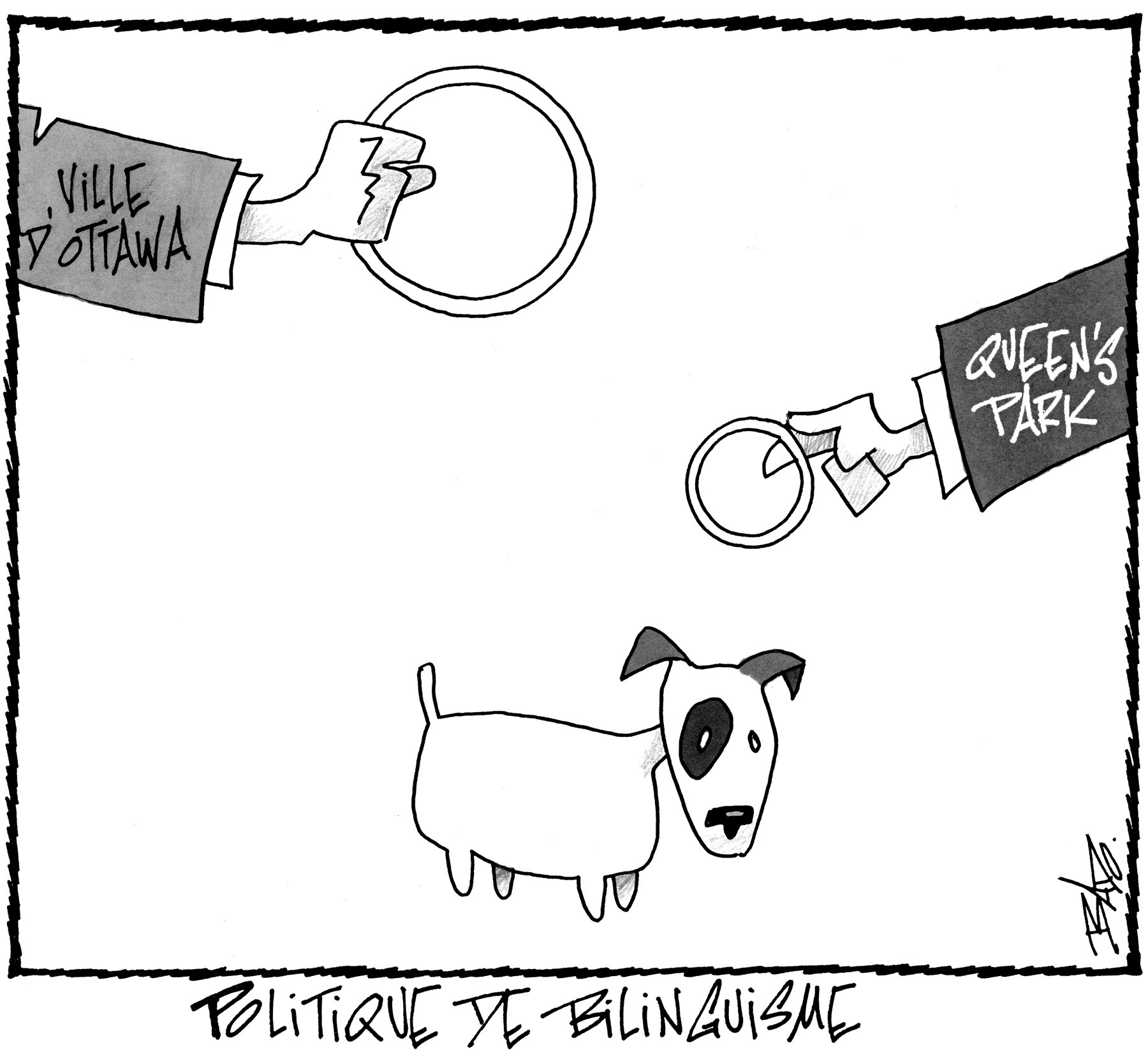
The federal capital’s bilingualism policy. The City of Ottawa and the Government of Ontario lob the ball back and forth.
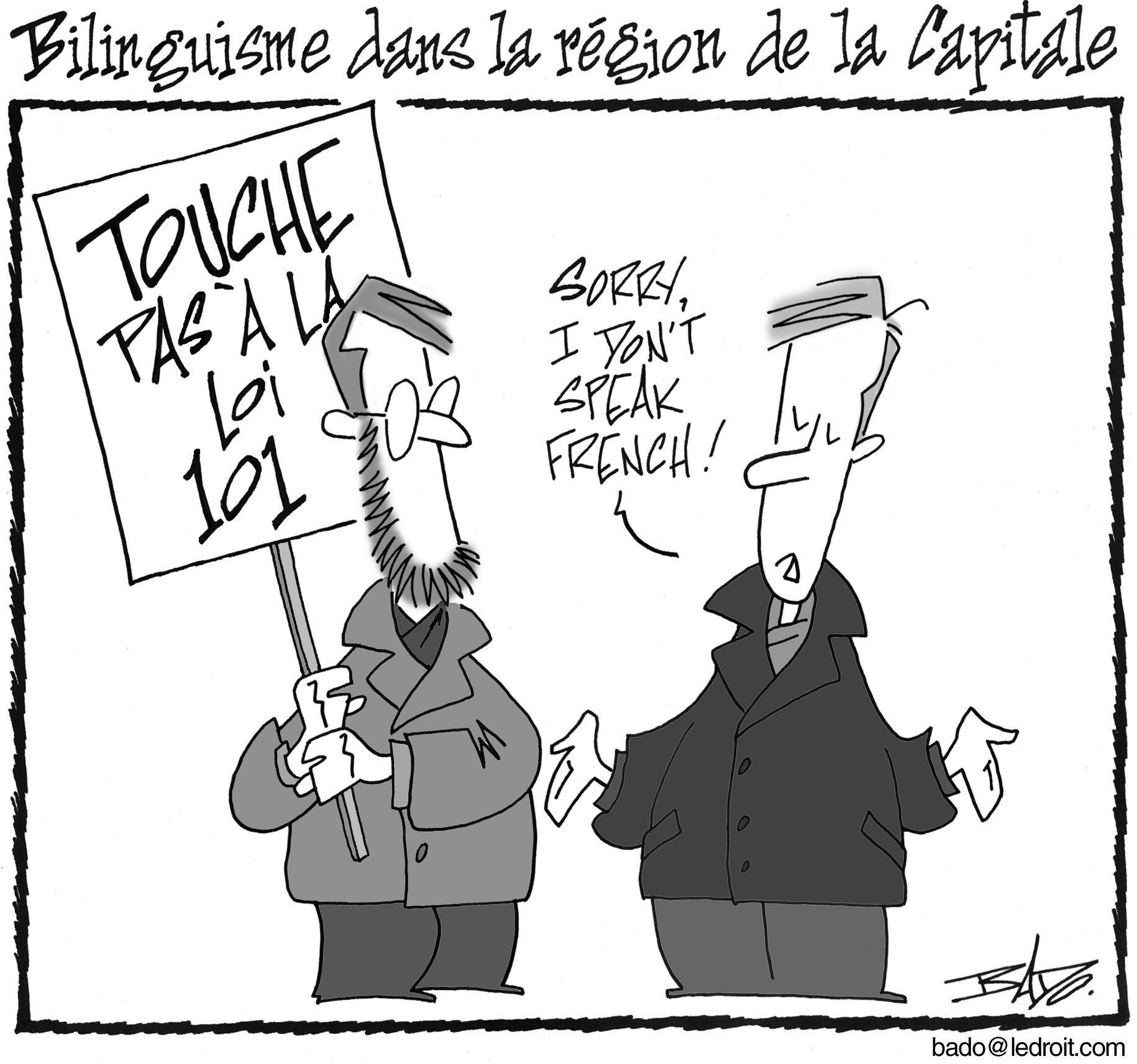
The Canadian Alliance, a political party that originated in western Canada, finds that the federal government is overly concerned with bilingualism in the City of Ottawa, but not enough with that in Gatineau, on the Quebec side of the Ottawa River, where Bill 101 is intent on protecting French.
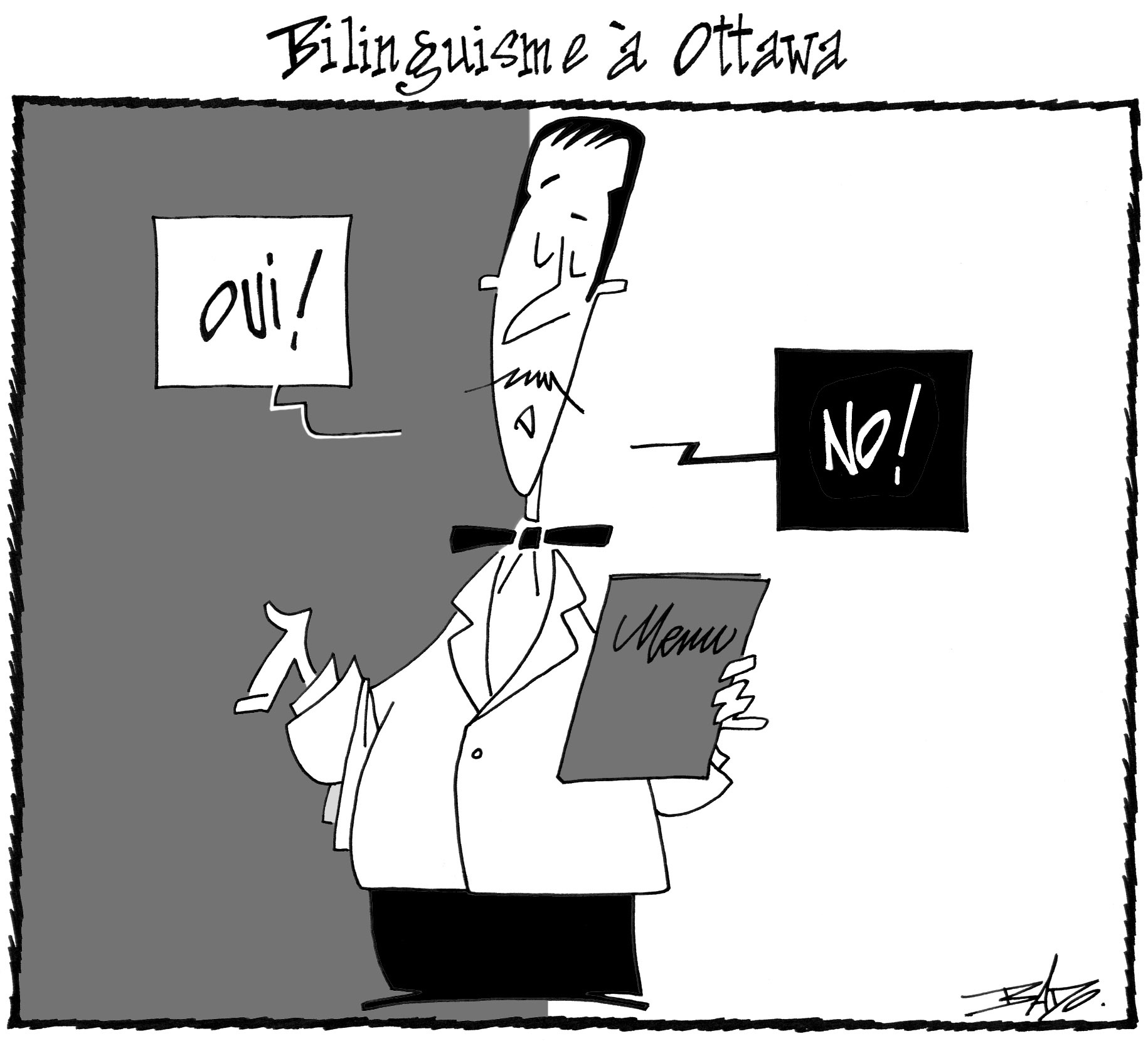
Ontario’s Conservative government persists in refusing to amend the City of Ottawa Act. The City would like to adopt the same policy that was in effect before the merger.
In 2007, another lackluster report on the situation of French in the federal capital surfaced. The policy was relatively well applied in the former historically francophone cities that are now neighbourhoods, like Vanier and Lowertown. However, the historically anglophone neighbourhoods, most of which are in the city’s west end, found it difficult to adhere to the municipal policy. In 2017, the Government of Ontario introduced draft legislation to formalize the bilingual status of the city of Ottawa. But many continue to await similar recognition and official designation on the federal side. Such a move would formalize the status as a bilingual capital of an officially bilingual country even if, in many regards, francophones are losing more and more ground.
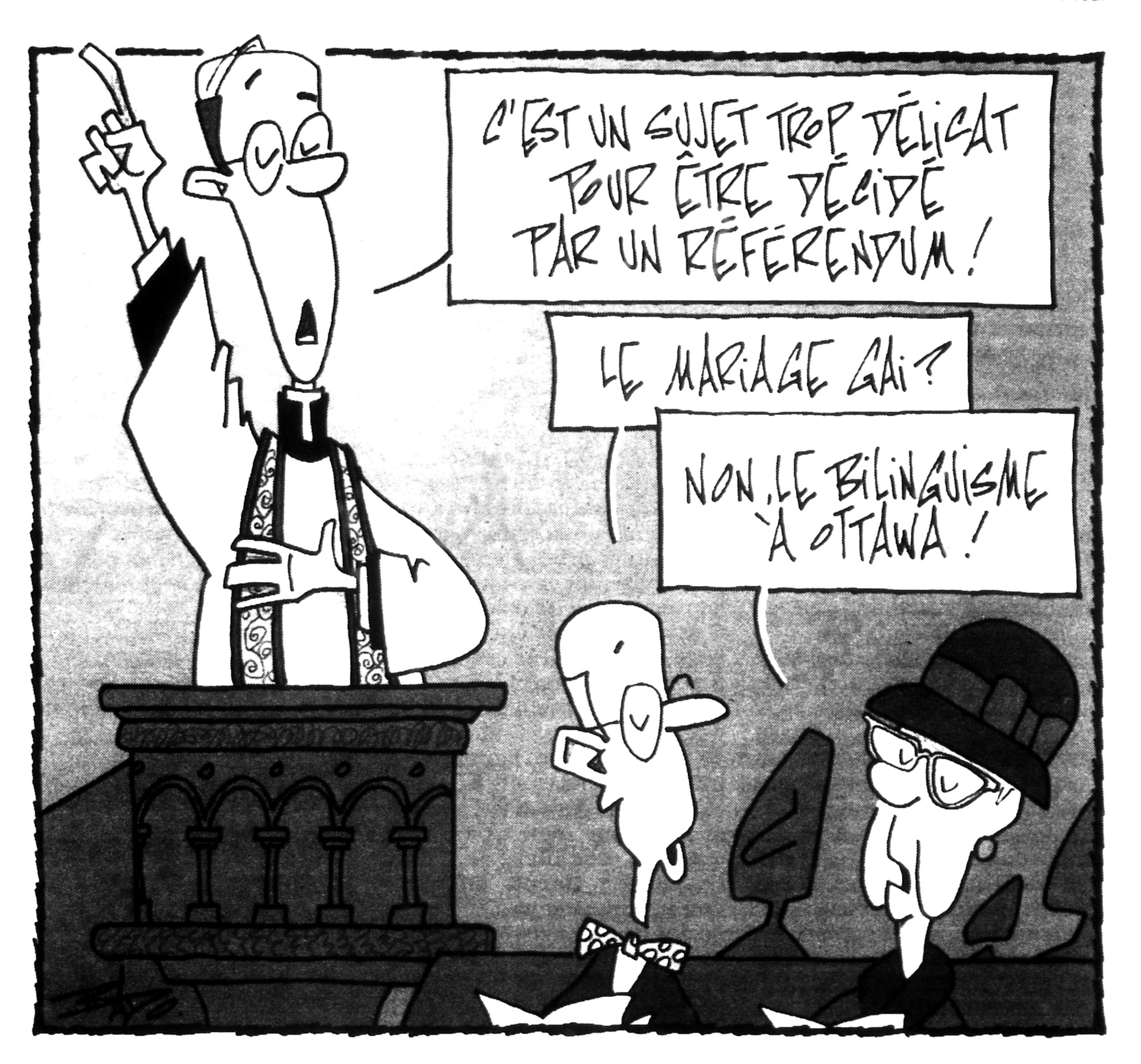
The (Liberal) Government of Ontario’s Bill 163 asks the City of Ottawa to adopt a bilingualism policy. Should there be a referendum?


